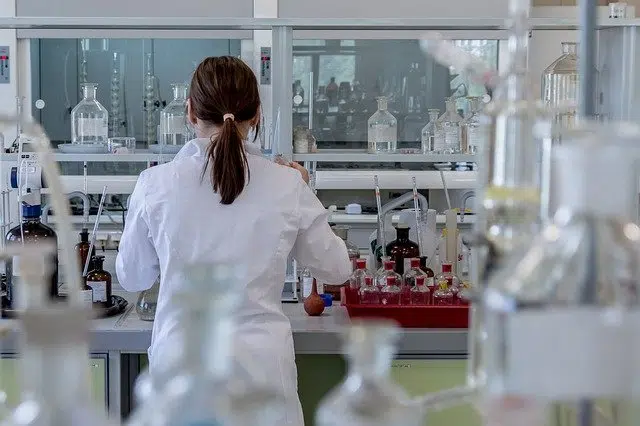
Researchers working in the field of biomedicine
Biomedicine is a term formed by the compositional element bio- (which refers to living beings, life or biology) and the noun medicine (referring to the set of techniques and knowledge that allow prevention, diagnosis, treatment and/or rehabilitate the different diseases that can affect a person).
Biomedicine is understood as the analysis of the biological dimension of medicine . The concept refers to the group formed by various disciplines that are dedicated to investigating, among other issues, how molecules and cells intervene in the development of diseases.
Cell biology , biochemistry , microbiology , molecular pharmacology and biomedical engineering , for example, are part of what is understood by biomedicine. It is important to emphasize that the contributions of biomedicine are both theoretical and practical.
Objectives of biomedicine
Beyond its contribution to the development of theoretical bases that allow increasing scientific knowledge, biomedicine aims to create drugs and techniques that are useful to diagnose and treat different health conditions. Its developments are based on the study of the molecular structure of pathologies .
By examining the interactions established between molecules , biomedical experts can understand how the body functions dynamically. This favors the detection of disorders and their possible solution in the least invasive and aggressive way possible.
Reach an early diagnosis ; obtain medications that are more effective and have fewer adverse effects; and designing new treatments are some of the goals that biomedicine sets itself.
Achievements of this field of study
The advances made by biomedicine in recent years are very important. In any case, specialists maintain that there is a long way to go and that the impact of discoveries in the future will be even greater.
Genome sequencing and DNA sequencing are two of the achievements associated with biomedicine. These processes open the door to the prediction of possible diseases that an individual may suffer according to their genetic configuration, resorting to eventual personalized diagnoses and treatments.

DNA sequencing, key in biomedicine
The development of stem cell therapies is also part of the work of biomedicine. It is hoped that these types of therapies will allow in the future to implement effective treatments against cancer , reverse muscle damage and cure spinal injuries , to name a few possibilities.
Working with stem cells (which are embryonic cells capable of producing a complete organism) enables the transfer of genetic material to other cells, can contribute to the restoration or stimulation of the immune system and is valuable for the possible replacement or regeneration of cells, tissues and even organs .
Where to study biomedicine
Currently there are degree courses and specializations linked to biomedicine. Universities in countries such as Argentina , Chile and Spain , among others, allow you to study biomedical engineering .
There are also master's degrees and other postgraduate degrees that provide specialized training in studies related to biomedicine, generally linked to a multidisciplinary approach.
